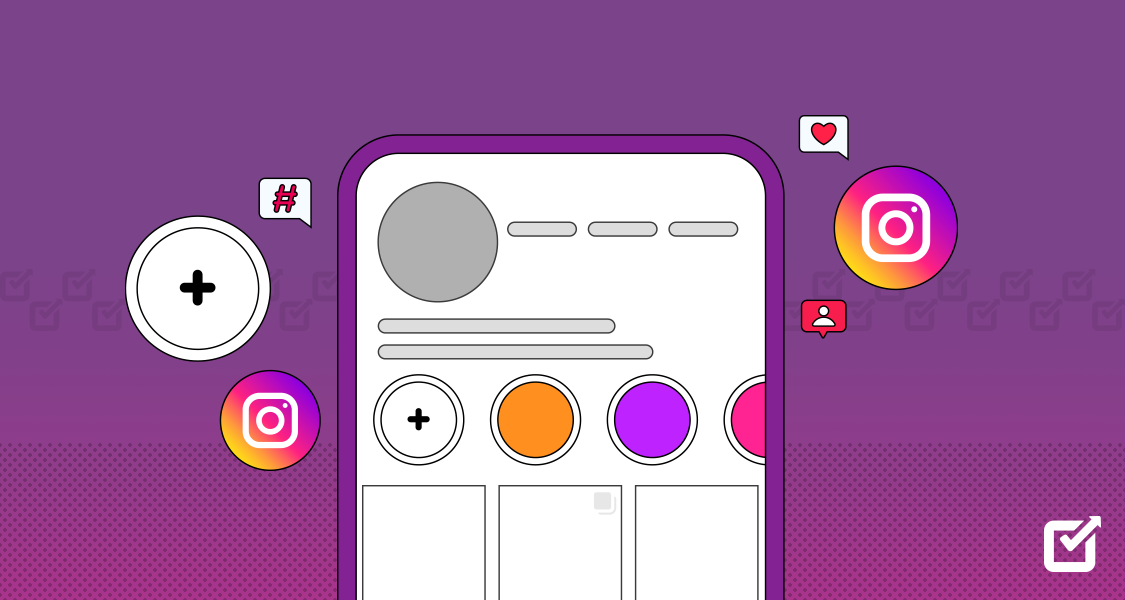Influencer marketing has emerged as a powerhouse strategy in modern marketing, showcasing its effectiveness in captivating audiences and driving brand engagement. While traditional advertising methods often struggle to resonate with today’s consumers, influencer marketing offers a more authentic and relatable approach by leveraging the trust and influence of social media personalities.
Here are the unfiltered thoughts of marketing experts, curated for your viewing pleasure.
Billy Parker
Director at Gift Delivery UK
Influencer marketing has indeed become a popular and effective strategy for brands to reach their target audience. However, like any other marketing tactic, it has pros and cons. One major advantage of influencer marketing is the ability to get a highly engaged and targeted audience through trusted individuals.
This can lead to increased brand awareness and credibility. On the other hand, the main disadvantage is the potential lack of control over the influencer’s content. There’s also the risk of negative publicity, especially if the influencer’s actions or behavior are not aligned with the brand’s values.
Looking ahead to 2024, influencer marketing will continue to shine as it evolves and adapts to the changing digital landscape. However, it may also face challenges, such as increased competition and the need for stricter regulations to ensure transparency and authenticity. Overall, I believe influencer marketing will remain a valuable tool for brands, but it will require careful planning and execution to be successful.
——————–

Christy Pyrz
Chief Marketing Officer of Paradigm Peptides
It has become quite apparent that influencers will continue to be a significant part of many businesses’ marketing strategies. Yet, the drawback in cost and ROI will lead to a trend of micro-influencers. Like everything else, the cost of partnering with an influencer with a significant following has risen dramatically. Still, their broad audience often casts too wide of a net for many small businesses, resulting in a poor return.
Therefore, many small businesses will look for micro-influencers with more specific audiences to match their brand messaging and create a more authentic feel to drive their campaigns. In addition, their costs can more readily fit into their budgets. As we head into this year and the next, micro-influencers will become the option for most small businesses who wish to use this method as part of their marketing strategy.
——————–

Hayim Pinson
Founder & CEO at Muscle and Brawn
In my opinion, influencers frequently establish deep connections with their followers, who put their faith in the advice and opinions they provide. Influencer marketing is a successful method for reaching and engaging target audiences because of its genuineness. Among the key channels for content consumption, platforms such as Instagram, YouTube, and TikTok have emerged as the most prominent options. It is much simpler for companies to communicate with an extensive and varied audience using these platforms to generate and distribute content. Influencers exist in every niche, giving brands a direct line to audiences with specific interests and making targeted marketing more powerful.
——————–

Eran Mizrahi
CEO of Ingredient Brothers
There is a possibility that specific platforms may become overloaded with sponsored content as more firms begin to engage in influencer marketing. This may result in issues over authenticity, as audiences will become more selective regarding sponsored articles. The sector is confronted with difficulties concerning the transparency of its operations and the observance of advertising restrictions.
It’s possible that some influencers don’t disclose sponsored partnerships in a sufficient manner, which might result in regulatory attention. Additionally, alterations to the algorithms used by social media platforms can impact the visibility of material produced by influencers. When it comes to influencer posts, for instance, platforms may favor certain kinds of material, which might have an effect on the reach and engagement of such posts.
——————–

Mikayla Reynolds
Owner of Cash Offers
Influencer advertising has truly turned out to be a first-rate resource in the advertising and marketing panorama. Here are some of the primary benefits of work fashion:
1. Authenticity and Trust: Influencers often have unswerving fans, and their guidance builds consideration and authenticity with their target audience.
2. Targeted Reach: Influencers have access to specific demographics and niche markets, which can provide brands with more targeted marketing.
3. Interactivity: Influencer content often leads to better ranges of engagement due to the fact their fans are genuinely inquisitive about their ideas and recommendations.
Looking forward to 2024, influencer advertising and marketing will continue to grow, but it can also face a few demanding situations. As the enterprise evolves, the emphasis will stay on transparency, honesty, and measurable ROI.
——————–

Jack Vivian
CTO at Increditools
Social media gurus are great influencers who help businesses grow their brand presence online. As a CTO, I expect influencers to take hold of 2024’s marketing field, helping to build established brands. Heading into 2024, both small and big brands should work with influencers to boost brand awareness while enhancing sales. Some of the pros of influencer marketing include generating visibility and boosting awareness. Influencers are usually visual marketing gurus who understand how to attract people.
For startups, influencer marketing is the right channel for companies to introduce themselves to the target audience. You can gain visibility through niche influencers by running giveaways and showcasing your products and services. Influencer marketing is good in helping businesses gain the trust of the influencers’ followers. Collaborating with an influencer guarantees a respectful relationship with their supporters.
However, influencer marketing has various cons, such as high influencer fees that might price out many businesses. Larger companies will look to hire popular influencers who often ask huge fees due to the audience they command. Additionally, working with an influencer also places your business at risk. If an influencer’s name and reputation are destroyed, your company might also be affected. Going forward, I believe influencer marketing will continue to grow, and many brands will embrace small and big influencers to boost their brand awareness.
——————–

Keenan Beavis
CEO of Longhouse Media
Influencer marketing is a useful tool; it has some unique advantages over traditional marketing methods, which have helped it become popular over the past few years. Its strengths lie in its ability to generate higher engagement through authentic, relatable content created by influencers with a dedicated and engaged audience. This content often comes across more naturally on the platform than as an “ad.” This approach allows for targeted reach, particularly effective in accessing specific demographics and niche markets. Additionally, influencer marketing presents a more cost-effective alternative to traditional advertising channels for many businesses, especially smaller ones.
However, it’s not without challenges. For instance, there is a risk of brand-influencer mismatch, the complexity of measuring effectiveness and ROI, market saturation, dependency on algorithms, and the potential for influencer-related scandals. Even with these potential limitations in mind, I don’t think influencer marketing will slow down anytime soon. Look at how quickly platforms like TikTok have grown; the user bases of these platforms aren’t fizzling out anytime soon. Though major influencers may take the limelight, Longhouse Media predicts micro-influencers will be favored this coming year due to their engaged audiences and affordability, which means you’ll get more cost-effective results.
——————–

Maurice Bretzfield
Founder of Digiquation
Influencer marketing, a significant player in the advertising realm, leverages influencers’ reach and trust with their followers. It offers authenticity and trust, as influencers often have a loyal following that trusts their opinions, leading to higher engagement and conversion rates. Influencers provide targeted reach, especially niche ones, enabling brands to reach specific audiences effectively. They are skilled content creators, producing unique, engaging content.
Their endorsements act as powerful social proof, influencing purchasing decisions. For many brands, particularly smaller ones, this form of marketing is more cost-effective than traditional channels. However, there are drawbacks. The market could become saturated, leading to skepticism about the authenticity of endorsements. Measuring ROI is more complex than with traditional advertising. There are increasing regulatory and ethical concerns about disclosure and transparency. Influencer marketing’s heavy reliance on social media platforms makes it vulnerable to changes in platform algorithms or policies. Additionally, the quality and professionalism of influencers varies, impacting campaign effectiveness and reputation.
Looking into 2024, influencer marketing is expected to continue growing but will evolve. Brands might focus on long-term partnerships with fewer, more relevant influencers. The industry will likely see increased regulation and a push for greater transparency and authenticity. Integrating emerging technologies like AR, VR, and AI could offer new ways for influencers to engage with their audience. There might be a shift towards micro and nano-influencers with higher engagement rates and more targeted audiences. Influencer marketing is set to remain a key strategy in 2024, undergoing significant changes and evolutions. Brands that adapt, focusing on authenticity, transparency, and strategic partnerships, will likely benefit most from this trend.
——————–

Jeff Mains
Founder of Champion Leadership Group
The significant pros of influencer marketing lie in its ability to create authentic connections with target audiences. Influencers can humanize a brand with their dedicated followings, making it more relatable and trustworthy. This is particularly effective in reaching younger demographics who value authenticity and personal connection over traditional advertising methods. However, the cons include potential misalignments between a brand’s values and the influencer’s persona.
There’s also the challenge of measuring the true ROI of influencer campaigns, as they often rely on indirect metrics like engagement and brand sentiment, which can be hard to quantify. Looking ahead to 2024, I believe influencer marketing will continue to evolve rather than face a downfall. We will likely see a shift towards long-term partnerships between brands and influencers, emphasizing quality and depth of engagement over sheer reach.
There’s also a growing trend towards leveraging micro and nano-influencers, who, despite having smaller followings, often boast higher engagement rates and niche audiences. The future of influencer marketing will depend heavily on the balance between authenticity and commercialization. As platforms continue to evolve and new forms of content emerge, brands and influencers must adapt their strategies to maintain genuine connections with audiences. In summary, while influencer marketing is here to stay, its ongoing reign will depend on how well it adapts to these evolving dynamics.
——————–

Bradley Fry
Owner of PinProsPlus
I was skeptical of this whole influencer thing at first. Paying Instagrammers and YouTubers to promote our products? It seemed gimmicky. But I can’t argue with the numbers – our sales and engagement skyrocket when we team up with the right content creator.
People do trust recommendations from these niche experts over traditional ads. Everyone wants honest opinions from real people rather than slick marketing campaigns. That said, there are some potential pitfalls brands should look out for. Fake followers are still an issue on some platforms. And you’ve got to find influencers whose vibe matches your product.
I predict that influencer marketing is here to stay, but it will get more buttoned-up. Brands will improve at vetting partners, negotiating contracts, and tracking ROI. But the space will continue growing as more content creators pop up on new platforms. Tapping into loyal, targeted fan networks is just too effective compared to most online ads.
——————–

Diana Zheng
Head of Marketing at Stallion Express
Influencer marketing has been a game-changer in recent years. Its popularity can be linked to influencers’ direct and personal connection with their followers, which frequently results in higher engagement rates than traditional advertising platforms.
The approach has several advantages, including the potential to access specialized markets, develop authentic content, and achieve high engagement rates. However, it has certain drawbacks, including the possibility of inauthentic endorsements if influencers push things they do not use, as well as the difficulty of assessing the direct impact on sales.
Looking ahead to 2024, influencer marketing will grow rather than decline. As customers become more knowledgeable, the need for authenticity will increase. This could result in a move toward micro-influencers, who typically have a more engaged and loyal following. Furthermore, as platforms create more advanced analytics tools, firms can track the effectiveness of their influencer marketing initiatives.
To summarize, while influencer marketing has problems, its potential benefits make it a trend worth examining for any company trying to broaden its reach and engagement in the digital realm. As with any marketing strategy, success depends on adaptability and remaining current with changes in the market.
——————–

Nathan Jacobs
Senior Researcher at The Money Mongers, Inc
Let’s unpack this influencer marketing buzz. It’s a breath of fresh air in advertising, truly connecting brands with people personally. We’ve seen way more engagement when influencers who genuinely like our stuff share it. But there’s a flip side – it sometimes feels forced, like ads sneakily hiding in your feed. Audiences notice when it’s not authentic. I don’t see influencer marketing fading out in 2024. Instead, it’s going to get even cozier with micro-influencers.
Their crowds are smaller, but followers hang on to their every word. It’s like having a tight-knit community rally around your brand. The key will be staying real, ensuring those partnerships are as genuine as homemade pie. And with tech getting smarter at personalizing things, influencer marketing needs to keep its human edge to stay relevant. In short, influencer marketing isn’t disappearing, but it must evolve. It’s about striking the perfect balance between real connections and smart strategy to keep the spotlight shining.
——————–

Joseph Harisson
CEO of IT Companies Network
Influencer marketing is gaining traction due to its ability to create a personal connection between influencers and their audience, making it more effective than traditional advertising methods. The major pros include increased trust and relatability and the ability to target specific audiences effectively.
However, challenges include potential authenticity issues and the risk to brand reputation from influencer misconduct. Looking ahead to 2024, influencer marketing is expected to remain prevalent. The trend may shift towards micro-influencers offering more niche, engaged, and authentic connections. While the future seems bright, it’s important for this strategy to continuously adapt and evolve, staying alert to the dynamic nature of the digital landscape.
——————–
Adam Hardingham
CEO of Rivmedia
I see influencer marketing as a vital yet complementary component of a broader digital marketing strategy. Its power lies in leveraging influencers’ trust and connections for targeted brand exposure. However, its effectiveness is amplified when integrated with robust SEO practices, ensuring that businesses gain visibility and rank prominently in search results.
Looking ahead, influencer marketing’s relevance in 2024 is poised to continue, but its impact will depend on its synergy with other digital strategies, especially SEO. This holistic approach, balancing influencer reach with search engine optimization, is key for sustainable, long-term online business success.
——————–
Emma Zerner
Co-founder and Content Strategist at IceCartel
Influencer marketing, undeniably, has reshaped the dynamics of brand engagement and consumer trust. One of the major pros is the authenticity it brings. Influencers, as relatable figures, bridge the gap between brands and consumers, fostering a more personal connection. This has been particularly effective in niches like fashion and lifestyle, where personal recommendation holds significant weight.
Another advantage is the targeted reach. Influencers often have a niche audience, making it easier for brands to reach their desired demographic precisely. Moreover, the creative content generated by influencers offers a fresh perspective, distinguishing it from conventional advertising. But, this trend has cons. Market saturation is a growing concern, with numerous influencers vying for attention, leading to potential audience fatigue. There’s also the challenge of measuring ROI, as the impact of influencer campaigns isn’t always directly quantifiable.
——————-
Anna D. Smith
Real Estate Broker at Adsmith Broker
Pros of Influencer Marketing:
1. Personal Brand Amplification – Building my influencer status naturally boosts my business brand, creating a symbiotic relationship between my personal and professional personas.
2. Enhanced Trust and Credibility – By sharing my expertise and insights, I aim to foster trust and credibility for myself and my business, enhancing client confidence in both my art and real estate ventures.
3. Direct Audience Engagement – Influencer marketing allows for direct interaction with my audience, offering immediate feedback and engagement, which is crucial for tailoring my services to meet client needs effectively.
Cons of Influencer Marketing:
1. Maintaining Authenticity – Balancing promotional content with genuine, valuable insights is challenging. It’s crucial to keep the authenticity that my followers expect while promoting my business.
2. Market Saturation – The growing number of influencers can dilute the impact. Standing out requires unique, high-quality content, like distinguishing a fine art piece in a crowded market.
3. Time and Resource Investment – Building an influencer profile requires significant time and resources, which can be challenging while managing a business.
——————-

Mark Fong
CEO & Founder Gonengo
Influencer marketing is great for businesses looking to increase brand awareness and credibility. However, it also comes with its pros and cons. Here are the major advantages and disadvantages of influencer marketing:
Pros:
Reaching a relevant audience: Influencer marketing allows businesses to target specific audiences based on the influencer’s following, ensuring the marketing message reaches the right people.
Building trust and credibility: Influencers have built trust and credibility with their followers, which can be leveraged to enhance a brand’s reputation.
Providing value to the audience: Influential personalities often provide valuable content to their followers, educating and entertaining them. A brand’s association with this value can enhance its reputation.
Cons:
Cost: The approach can be expensive, especially if partnering with influencers with a large following. Some influencers charge thousands of dollars for a single post, which can be a barrier for small businesses with limited marketing budgets.
Finding the right influencer: Finding the right influencer who aligns with a brand’s values and target audience can be challenging.
Limited control over messaging: Once an influencer creates content, businesses may have limited control over the messaging and how it represents their brand.
In 2024, influencer marketing is expected to continue as a potent marketing strategy. The landscape of influence marketing is evolving, with emerging trends such as the rising significance of micro and nano-influencers, the paramount value of long-term influencer partnerships, and the heightened focus on authenticity and value-driven collaborations. The future of influencer marketing is predicted to be characterized by video content, diverse partnerships, and quantifiable ROI.
——————-
Kayden Roberts
CMO at CamGo
Influencer marketing, which started as a trend, is now a key part of modern marketing. It stands out because it makes brands feel more human and builds real connections with audiences. This approach works so well because influencers have a trust bond with their followers, offering a more personal touch than traditional ads. It’s all about reaching the right people, being authentic, and getting people involved. Influencers usually have niche audiences, which lets brands talk directly to specific groups.
When they recommend something, it feels more real and relatable, boosting the brand’s credibility. But it’s not all smooth sailing. One big issue is determining how much influencer campaigns contribute to sales and ROI. Also, since brands don’t have much control over what influencers create, sometimes the content doesn’t match up with what the brand’s all about. And with so many people trying to be influencers, it’s getting harder for brands and influencers to stand out.
——————-
Campbell Tourgis
Executive VP & Chief Operating Officer at Wainbee
Influencer marketing shines in the advertising spotlight, but a major concern is the risk of controversy. As brand ambassadors, influencers may find themselves in public disputes or situations that clash with brand values. This can seriously harm a brand’s image and lead to negative consequences like boycotts.
As influencers gain more influence, scrutiny of their actions increases. Brands must carefully choose influencers, considering their online presence and values alignment, to avoid being associated with controversies. While influencer marketing is likely to stay popular in 2024 or even years after that, brands must be cautious and understand that an influencer misstep can quickly impact their reputation.
——————-
Colin Hannan
A primary advantage lies in reach and engagement. Influencers act as trusted gateways, bypassing the crowded marketing landscape and connecting brands with specific, engaged audiences. Their credibility resonates deeply, fostering a sense of authenticity and loyalty that traditional advertising often struggles to match. This translates into real results, with effective influencer campaigns driving conversions and boosting ROI. Additionally, their creative storytelling abilities offer diverse and engaging avenues for brands to amplify their voices and reach new heights. So, will influencer marketing shine brighter in 2024 or face a potential downfall?
The answer likely lies in a paradigm shift, where transparency, authenticity, and deeper engagement reign supreme. We can expect a focus on niche targeting, leveraging micro-influencers with genuine connections to specific communities. AI-powered authenticity audits will likely rise, weeding out fraudulent practices and providing brands with valuable insights. Interactive and immersive campaigns, transcending static endorsements and offering personalized experiences, will probably take center stage.
Ultimately, the fate of influencer marketing rests on its ability to evolve beyond the superficial and embrace genuine partnerships built on shared values and meaningful engagement. Whether it continues to shine or fade depends on a collective commitment to transparency, creativity, and a laser focus on building deeper connections between brands and consumers.
——————-
Kenya Thomas
Digital Marketing Specialist at Kenya Thomas
Influencer marketing stands out for its ability to forge authentic connections between brands and audiences. Its strengths lie in utilizing influencers’ trust with their followers, leading to enhanced engagement and more precise audience targeting. However, challenges like measuring ROI and maintaining authenticity amidst commercialization remain. As we look to 2024, I anticipate a shift towards micro-influencers and sustained partnerships, emphasizing genuine content and relatability. This evolution mirrors changing consumer preferences for authenticity and meaningful interactions.
——————-
Riva Jeane May Caburog
Media Coordinator at Nadrich & Cohen
Influencer marketing, though effective, often only has a short-lived rather than a long-term impact. To keep seeing results, brands must engage with influencers and consistently create fresh content. Social media is fast-paced, with trends changing quickly, and influencers need to stay relevant. This constant need for newness can be a challenge.
While influencer marketing might stay in the spotlight, there’s a risk of losing appeal if not handled carefully. The key will be adapting to new trends, working with diverse influencers, and staying authentic to keep audiences engaged despite the changes in their preferences. I’d say success will depend on strategic evolution and avoiding oversaturation or audience fatigue.
——————-
Alison Lancaster
Co-founder of Pressat
Influencer marketing has radically changed how brands connect with today’s consumers. By partnering with people audiences relate to and trust, influencers help brands build authentic relationships in a way traditional ads simply can’t match. As a result, influencer campaigns are increasingly more effective than outdated methods. Of course, every strategy has flaws. Ensuring sponsorships remain genuine and don’t jeopardize influencers’ honesty requires diligence.
Measuring complex campaigns’ true impact also takes imagination. However, with this vibrant industry, naysayers are indeed underestimating people’s desire for authenticity – now more than ever. While some quickly follow fleeting trends, longevity demands a more profound connection over surface metrics. Trust needs nurturing over time through openness, not hastily manufactured hype.
Looking ahead, the savviest promoters will cultivate diverse, individualized talent instead of a few transient stars. Transparency will matter more; audiences will scrutinize sponsor details, expecting honesty. Data can confirm success, but human insight must guide interpretation. Influencer marketing can become a lasting art form when focused on shared passions and authentic engagement. Guided by care and wisdom, it holds the potential to create a brighter future built on diversity and trust. This can be a bet worth making.
——————-
Josh Neuman
Founder of Chummy Tees
With my marketing background, I’ve seen influencer marketing go from a trendy tactic to essential strategy. But looking ahead, brands need to evolve their approach to keep gaining value. The way I see it, it’s crucial that influencers actually live the values and messaging of the companies they represent. As audiences get smarter, there’s no faking it – integrity demands true alignment on causes, not just products.
Brands succeeding long-term will only partner with influencers authentically sharing their goals. Rethinking metrics will be influential, too [pun intended]. Sales and engagement still matter but need balance. Do consumers form lasting bonds and change behaviors? That shows real resonance. Psychographics matter more than demographics alone.
Influencers should expect growing responsibilities as well. Reach is table stakes – facilitating real connections, gaining insights, and staying culturally relevant will set elite partners apart. With the micro-celebrity effect, thoughtfully considering psychological factors like parasocial relationships will be vital. Brands must avoid exploiting these while acknowledging their power when harnessed intentionally.
——————-

























